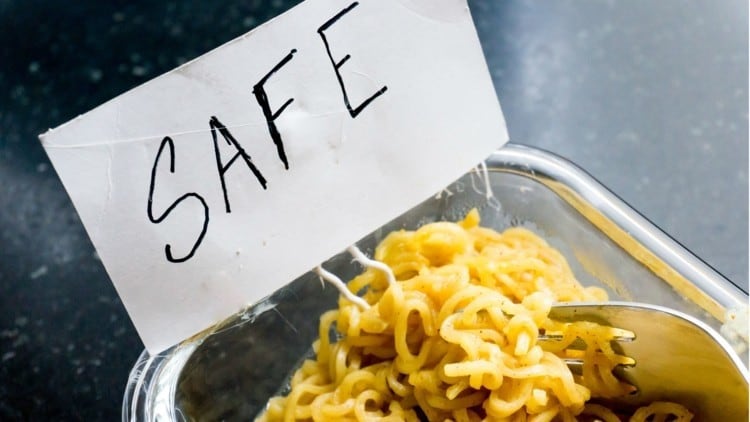Haryana is known to be one of the country’s most advanced states, receiving significant amounts of investment as well as expecting a high 8.2% growth in gross state domestic product (GSDP) as opposed to the 7.2% growth recorded at national level, according to India’s Finance Minister Captain Abhimanyu.
According to FSSAI data, 737 out of 2,929 (25.2%) food samples taken in Haryana had been found to be non-conforming to local food safety and quality standards. Of these, 95 were deemed ‘unsafe’, 459 ‘substandard’ and 183 ‘misbranded’.
Although all 737 samples fall short of requirements, it is clear that FSSAI only considers samples that are ‘unsafe’, or adulterated/fake to be a significant issue, but not ‘substandard’ (falls short of required quality levels, e.g. lacking certain nutritional content) or ‘mislabelled’ (wrong information provided to consumers).
This is especially clear following FSSAI CEO Pawan Agarwal expressing ‘satisfaction over improved enforcement’ in the year 2018 to 2019 – with an increased number of samples non-conforming to required quality standards considered a matter for praise due to better detection.
Previous FSSAI data showed that in 2016-2017, 2,033 samples were taken and 188 (9.2%) were non-conforming, whereas 2,067 food samples were taken in 2017-2018 and 380 (18.4%) were non-conforming.
‘Public trust has been eroded in recent times due to fake news creating widespread perception of large-scale adulteration in the country,” Agarwal claimed in a formal statement.
“There has been a 7% increase in the number of samples analysed during 2018-19 as compared to 2017-18 [and] 25% more samples were found non-conforming compared to the previous year. This shows that there has been better targeting of enforcement efforts by States/Union Territories (UTs) [such as Haryana] in the country.”
Food samples in the country are taken and analysed by the FDA, and FDA Haryana Joint Commissioner (Food) DK Sharma told Tribune India that most of the failed samples comprised of ‘sweets, cheese, spices, milk and liquor’.
These are very much the usual suspects: Milk and dairy products have been known to be a significant target of adulteration and/or quality issues in the country for some time now, as have liquor and spices – so this revelation should come as no surprise.
New year, new testing, new labs, new results?
Across several other formal statements, FSSAI emphasised that it has ascertained 183 laboratories certified under the country’s National Accreditation Board for Testing and Calibration Laboratories (NABL), as well as invested large amounts for new food safety testing methods, but there remain concerns about whether these initiatives are sufficient to address the country’s woes.
The 183 NABL-certified laboratories were announced by FSSAI Joint Director QA Umesh Kumar Jain, but closer examination of the list he signed off on revealed only 180 laboratory listings, and worse yet 28 were highlighted as either having their accreditation suspended, expired, or about to expire within the next two months – leading to doubts about why Jain included these in the list.
Tea Research Association Secretary and Principal Officer Joydeep Phukan told FoodNavigator-Asia previously that there is a six-month period for labs to revalidate after the accreditation expiry – this means that these published lists may not show 100% consistency and timeliness.
Agarwal on the other hand announced that FSSAI would spend some INR200mn (US$2.8mn) to procure procure rapid food testing kits and devices moving into 2020, especially those that ensure ‘faster, better, cheaper’ real-time testing of food
“FSSAI is also providing these kits/devices to the State Governments for use by field officers and get quicker & validated results for tests conducted on different food products such as milk and edible oils, amongst others,” the agency said.
This is necessary, especially given the agency’s severe manpower shortage issues in government laboratories. It has also initiated a public-private partnership (PPP) model to deal with this.
“There is a shortage of manpower in government laboratories across India, which hampers food testing functions of the laboratories,” Agarwal told livemint.
“The government provides major equipment and scientists but for manpower in various sections of the laboratories and raw materials such as glass and chemicals, we can look at a fair bidding process to loop in private players.”





